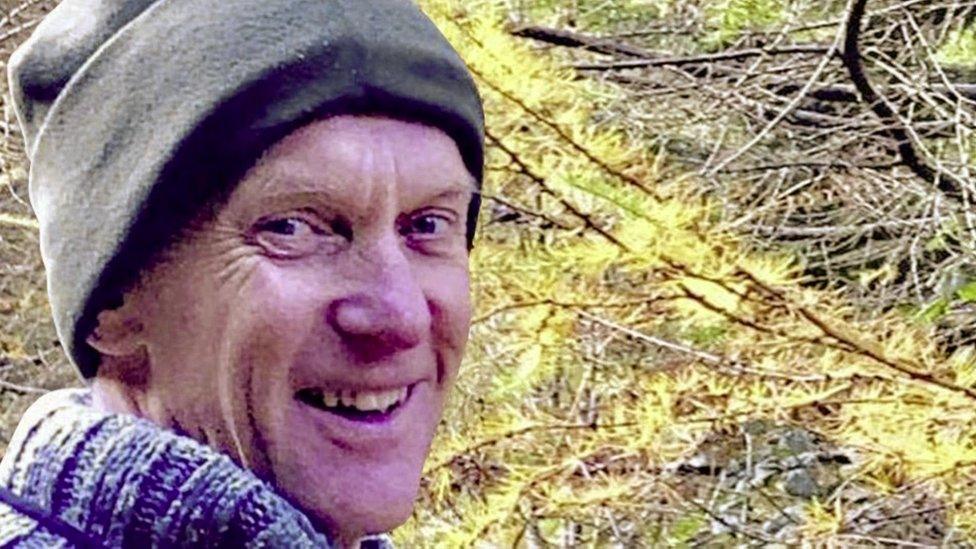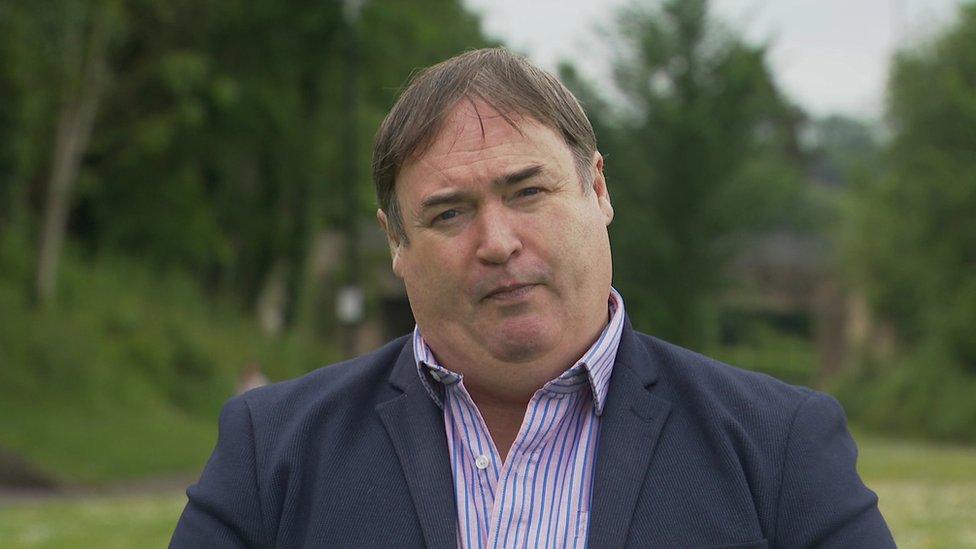Dr Michael Watt: Patient seeks judicial review over voluntary removal
- Published

Dr Michael Watt can no longer practice medicine in the UK
A patient of the neurologist Dr Michael Watt is seeking a judicial review of the decision to allow him voluntary erasure from the medical register.
Dr Watt was at the centre of the biggest ever recall of patients in Northern Ireland amid concerns about his clinical practice.
He worked in the Belfast Health Trust.
He was granted voluntary removal from the register during a private hearing of the Medical Practitioners Tribunal Service (MPTS) last month.
His removal from the register means he can no longer practice medicine in the UK.
The MPTS makes independent decisions about cases referred by the General Medical Council (GMC).
That decision was criticised at the time by the GMC, which said it was was in the public interest for the case against Dr Watt "to be heard by the tribunal in an open and transparent way".
A solicitor representing a former patient of Dr Watt told BBC News NI his client has made an application for leave to apply for a judicial review of the MPTS decision.
A hearing is expected to take place in Belfast later this month.
'Unfairness and upset'
Ciaran O'Hare said the proceedings were "extremely significant" not only for his client but other former patients of Dr Watt.
"My client's upset has been compounded by the fact that we do not know the reasons why Dr Watt's application for voluntary erasure was allowed, nor why the hearing of the application itself was in private," he said.
"All of these matters simply reinforce the sense of unfairness and upset that my client has about the MPTS decisions, and I am sure that other patients and their loved ones also feel the same way."
'Let down by the system'
It comes after Stormont's Health Committee chairman called for reasons behind the tribunal decision to be made public.
Colm Gildernew was responding to comments made by senior members of the General Medical Council (GMC).

Sinn Féin's Colm Gildernew chairs the Health Committee at Stormont
On Thursday senior members of the GMC gave evidence about Dr Watt's case to the Northern Ireland Assembly's Health Committee.
GMC chief executive Charlie Massey said the council had hoped the tribunal would have been held in public.
He acknowledged that the failure of the MPTS to publish a "detailed set of reasons" behind its decision has caused more stress, anger and disappointment among patients.
The GMC said it did not proceed with a judicial review challenging the tribunal's decision because it was advised that such a move would not be successful.
Mr Gildernew, a Sinn Féin MLA, said patients had been "let down by the system" and the MPTS decision was a "further blow to their ability to see accountability and even the facts of the situation aired".
He told the GMC that many of the affected patients felt a "challenge in itself would have been worthwhile" and many would have liked to have at least seen the system and the decision challenged.
GMC director of fitness to practice Anthony Omo said it was the first time in GMC history that it had considered judicially reviewing one of the MPTS committee's decisions.
He said the decision not to press ahead with such a move had not been taken lightly.
- Published21 September 2020

- Published5 October 2021

- Published20 April 2021
